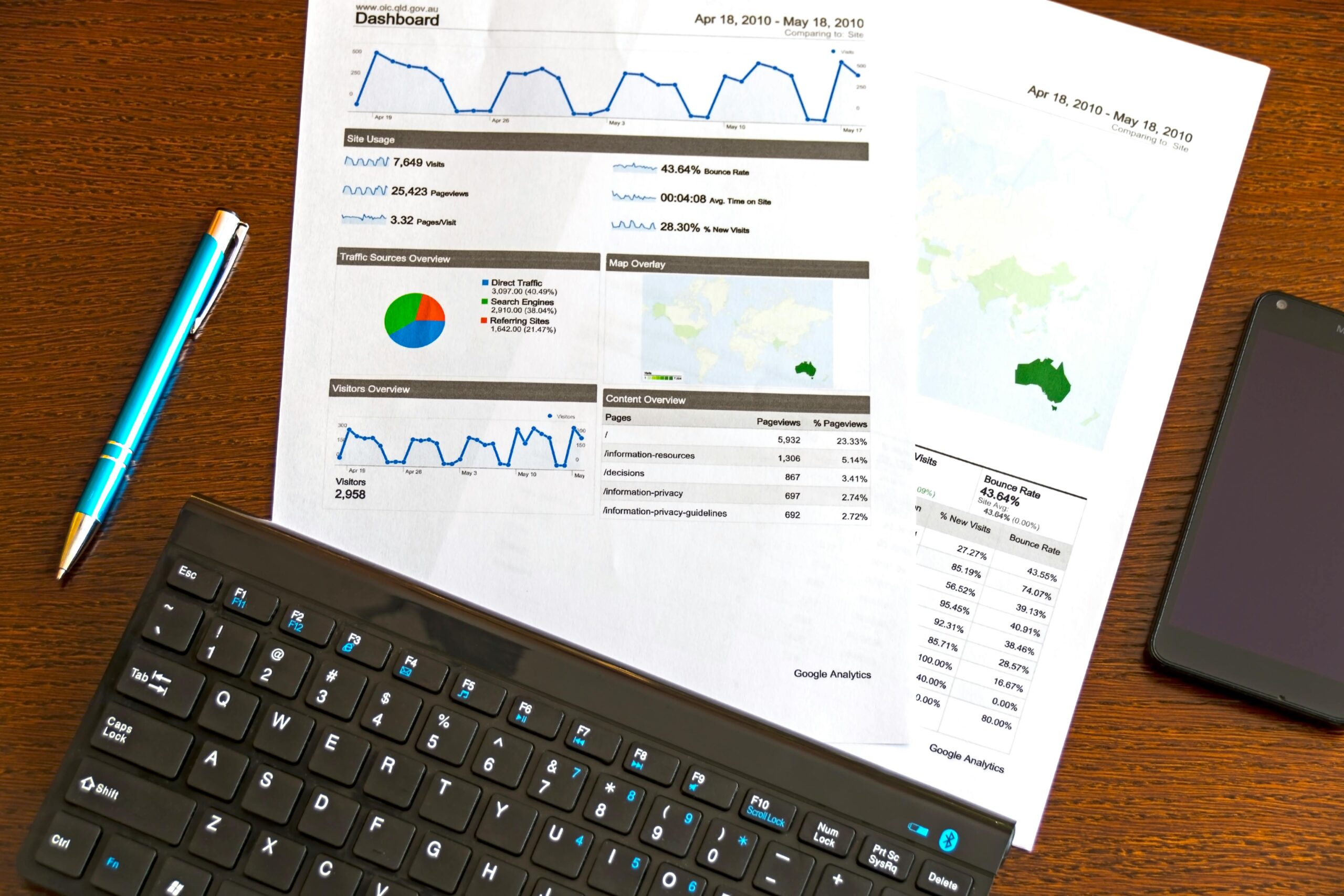Unlock the hidden potential of your hospitality business with Review Insights For Hotels: Unlock Powerful Secrets To Boost Bookings! In today’s fiercely competitive travel industry, understanding guest feedback isn’t just helpful—it’s absolutely essential. But have you ever wondered how some hotels seem to attract more bookings effortlessly while others struggle? The secret lies in harnessing the power of hotel review analytics and customer experience insights to transform every guest comment into a strategic advantage. This article dives deep into the most effective ways to leverage online reviews for hotels and reveals proven techniques to increase direct bookings like never before.
Why should you care about hotel review management strategies? Because reviews are more than just stars and comments—they are a goldmine of information about what guests truly want and expect. Imagine unlocking actionable insights that not only improve your service but also skyrocket your rankings on platforms like TripAdvisor and Booking.com. Curious about how sentiment analysis tools for hotels can change your marketing game? Or how to identify hidden trends in guest feedback that competitors overlook? We’ll explore all that and more, revealing insider secrets that hospitality professionals swear by.
In this fast-paced digital age, travelers rely heavily on authentic reviews before making reservation decisions. That’s why mastering online reputation management for hotels can directly impact your revenue and brand loyalty. Stay tuned as we uncover the most powerful review insights for hotels that drive meaningful improvements, boost guest satisfaction, and ultimately, increase your booking rates. Ready to unlock the true potential of your hotel’s reviews and dominate the market? Let’s dive in!
How Review Insights for Hotels Can Skyrocket Your Booking Rates in 2024
How Review Insights for Hotels Can Skyrocket Your Booking Rates in 2024
In the fast-moving world of hospitality, staying ahead of competitors require more than just offering a clean room or a complimentary breakfast. Today, the power lies within “review insights for hotels,” a concept that many hotel owners and managers still underutilize. Understanding how to leverage reviews can dramatically increase your bookings in 2024, especially when travelers rely heavily on online opinions when choosing where to stay. But what exactly are review insights, and how can they unlock secrets to boosting your hotel’s popularity and reservations? Let’s dive deep into this topic and uncover the facts.
What Are Review Insights for Hotels?
Review insights means analyzing the feedback guests leave on various platforms such as TripAdvisor, Google Reviews, Booking.com, and Expedia. These insights don’t just include the star ratings, but also the patterns, sentiments, and specific comments that reveal what guests love or hate about the experience. Hotels that use these data properly can identify strengths to promote and weaknesses to fix, which in turn attract more bookings.
To put this in perspective, think of review insights as a GPS for your hotel business. Without it, you might be driving blindly hoping to reach your destination. But with it, you get clear directions to improve and grow.
Why Review Insights Matter More Than Ever in 2024
The hospitality market is more crowded than ever. Travelers have tons of options and they trust other customers more than marketing messages. According to a 2023 study by BrightLocal, 87% of consumers read online reviews for local businesses, including hotels, and 72% say positive reviews makes them trust a business more. This trend only grow stronger in 2024.
Also, review insights help hotels adapt to changing traveler preferences and expectations. For example, post-pandemic travelers put a higher emphasis on cleanliness and safety. Hotels that identify these priorities through review analytics can tailor their services and highlight them, increasing bookings.
How to Unlock Powerful Secrets Using Review Insights
There are several steps hotels can take to turn review insights into action. Here’s a practical outline:
Collect Reviews Across Platforms
Don’t rely on a single platform. Collect reviews from multiple sources to get a complete picture.Analyze Sentiment and Keywords
Use tools or manually read through comments to find common words or feelings. Are guests complaining about slow check-in? Or praising the breakfast?Segment Feedback by Room Type or Demographic
Different guests might have different experiences. Families might care more about space, while business travelers focus on Wi-Fi speed.Identify Consistent Issues and Strengths
If multiple reviews mention noisy air conditioning, it’s a red flag. If many praise the friendly staff, that’s a strength to promote.Respond to Reviews Publicly
Engage with guests by replying to reviews, showing you care. This can improve reputation and attract more bookings.Adjust Marketing and Operations Based on Insights
If guests love your rooftop bar, highlight it in ads. If cleanliness is a concern, invest in better housekeeping and communicate this improvement.
Comparing Hotels That Use Review Insights vs Those That Don’t
| Aspect | Hotels Using Review Insights | Hotels Ignoring Reviews |
|---|---|---|
| Guest Satisfaction | Higher due to targeted improvements | Often stagnant or declining |
| Booking Rates | Steadily increasing with better reputation | Flat or decreasing due to negative feedback |
| Marketing Effectiveness | Tailored and authentic messaging | Generic and less engaging |
| Operational Efficiency | Efficient by addressing real issues | Waste resources on non-priority areas |
| Customer Loyalty | Builds stronger repeat customer base | Struggles to retain guests |
Examples of Review Insights Impacting Hotel Success
A Boutique Hotel in Manhattan noticed many guests complaining about noisy elevators in reviews. After upgrading the elevator system and mentioning this in responses, booking rates increased by 15% within six months.
A Luxury Resort in the Hamptons found that family guests valued kid-friendly amenities the most. They added a kids’ club and highlighted it in their advertising, leading to a 25% boost in family bookings.
A Budget Hotel in Queens discovered through reviews that travelers wanted faster Wi-Fi. After improving the service and sharing the update in their profiles, they saw a significant rise in business traveler reservations.
Practical Tips to Implement Review Insights in Your Hotel
- Use software like ReviewTrackers or TrustYou to aggregate and analyze reviews automatically.
- Train staff to recognize common complaints and empower them to solve problems swiftly.
- Create a monthly review summary report to track changes and improvements.
- Encourage guests to leave honest reviews by asking politely during check-out or sending follow-up emails.
- Monitor competitors’ reviews too, to discover
7 Powerful Secrets to Leverage Guest Feedback for Hotel Growth
In the bustling hotel industry of New York, standing out is not just a challenge, it’s a necessity. Hotels constantly seek innovative ways to attract more guests, improve their services, and ultimately grow their business. One resource that often goes underutilized is guest feedback. This feedback, when properly leveraged, can become a goldmine for hotel growth and increased bookings. Today, we will explore seven powerful secrets to use guest feedback to your hotel’s advantage, focusing on review insights for hotels that unlock the door to success.
Why Guest Feedback Matters So Much
Guest feedback isn’t just about collecting compliments or complaints. It is a direct line to understanding the guest experience from their perspective. Historically, hotels relied on word-of-mouth or periodic surveys to gauge satisfaction but with digital platforms like TripAdvisor, Google Reviews, and Booking.com, feedback is everywhere and immediate. Ignoring these insights means missing out on crucial information that can boost your hotel’s reputation and operational efficiency.
1. Actively Monitor All Review Channels
Many hotels only check one or two review sites, but guests leave feedback everywhere. From social media comments to niche travel blogs, every mention counts. Failing to monitor multiple channels might cause hotels miss important trends or recurring issues.
- Track reviews daily on major platforms (TripAdvisor, Google, Expedia)
- Use tools like ReviewPro or Revinate for aggregated insights
- Don’t forget local or less popular sites that cater to specific traveler groups
For example, a boutique hotel in Manhattan realized its breakfast service was frequently criticized on a small foodie blog. After improving it, they saw a noticeable increase in bookings from culinary tourists.
2. Categorize Feedback for Clear Insights
Reading through hundreds of reviews can be overwhelming and confusing. Categorizing feedback by themes helps managers quickly identify strengths and weaknesses.
Common categories include:
- Cleanliness
- Staff friendliness
- Location convenience
- Room comfort
- Amenities quality
- Food & dining experience
Imagine a table like this for easy reference:
| Category | Positive Mentions | Negative Mentions | Trends Observed |
|---|---|---|---|
| Cleanliness | 120 | 15 | Mostly praised, few complaints |
| Staff Friendliness | 110 | 25 | Some guests found staff rushed |
| Food & Dining | 80 | 50 | Breakfast complaints rising |
This simple structure allows hotel teams to prioritize what need immediate attention.
3. Respond Rapidly and Personally to Reviews
Some hotels think ignoring negative reviews is best, hoping they’ll just go away. But this is wrong. Responding quickly to reviews, especially negative ones, shows potential guests that the hotel cares.
Tips for responding:
- Address the reviewer by name if possible
- Thank them for their feedback
- Apologize sincerely for any issues
- Explain any changes made or planned
- Invite them back for a better experience
A New York hotel that replied promptly to a guest complaint about noisy neighbors ended up turning that guest into a loyal customer by offering a complimentary upgrade on the next stay.
4. Use Feedback to Train Staff
Review insights should be shared with front-line employees regularly. If guests consistently mention poor customer service, it’s a clear sign that training is needed.
Practical steps:
- Monthly feedback summaries in staff meetings
- Role-playing difficult guest scenarios based on real reviews
- Recognize and reward employees praised in reviews
Hotels that invest in staff development tend to see improved guest satisfaction scores and repeat business.
5. Highlight Positive Reviews in Marketing
Positive guest reviews are like free advertising. Instead of hiding them in the depths of your website, showcase them prominently.
Ways to do this:
- Feature testimonials on homepage
- Use snippets in email campaigns
- Share on social media platforms
- Include in booking confirmation messages
For example, a luxury hotel in Manhattan displayed guest praise about its rooftop bar in Instagram stories, attracting a younger crowd eager to experience the venue.
6. Identify Hidden Opportunities from Negative Feedback
Negative reviews often contain valuable clues about unmet guest needs or overlooked opportunities.
Examples:
- Complaints about limited parking might indicate a need to partner with nearby garages
- Guests mentioning lack of family-friendly amenities can inspire new packages
- Repeated notes about slow Wi-Fi could prompt investment in better technology
By transforming problems into opportunities, hotels can differentiate themselves in a competitive market.
7. Track Changes Over Time for Continuous Growth
Guest preferences and expectations evolve constantly. What worked last year might not satisfy today’s travelers. Consistent tracking of review trends over months or years provides a bigger picture of hotel performance.
Simple ways to track:
- Monthly review score averages
- Percentage of positive vs negative comments
- Emerging themes in guest feedback
This long-term analysis helps managers make strategic decisions rather than reacting only to daily comments.
In short, review
Unlocking the Hidden Patterns in Hotel Reviews: A Data-Driven Approach
Unlocking the Hidden Patterns in Hotel Reviews: A Data-Driven Approach
In the bustling hospitality industry, where travelers constantly searching for the perfect stay, hotel reviews have become more than just opinions. They are a goldmine of information, holding hidden patterns that can reveal what really drives guest satisfaction or dissatisfaction. Hotels in New York and beyond are starting to realize that review insights for hotels can unlock powerful secrets to boost bookings, improve service, and sharpen their competitive edge. But how do you mine this data effectively? And what patterns are hiding in plain sight within thousands of guest reviews? This article dives into a data-driven approach to uncovering these insights, offering practical guidance and examples that can transform how hotels understand feedback.
Why Hotel Reviews Matter More Than Ever
The importance of reviews in the hotel industry cannot be overstated. According to a 2023 survey by TripAdvisor, over 80% of travelers read at least 10 reviews before booking a hotel. This means, reviews doesn’t just influence guest choices; it often defines them. But the sheer volume of reviews makes it impossible for hotel managers to read each one carefully. That’s where data analysis comes in.
Historically, hotels relied on star ratings or overall sentiment scores to judge their reputation. But these metrics oversimplifies complex guest experiences. A 4-star rating could hide a range of issues or glowing praise. By looking deeper at patterns within text reviews, hotels can find specific strengths and weaknesses that star ratings alone can’t reveal.
Using Data Analytics To Reveal Hidden Patterns
Data-driven approaches use natural language processing (NLP), sentiment analysis, and machine learning to sift through large datasets of reviews. These technologies detect recurring themes, common complaints, and highlight positive attributes. For example, if many reviews mention “slow check-in” or “friendly staff,” those become quantifiable patterns that managers can act on.
A practical example is a hotel in Manhattan that used NLP to analyze 10,000 reviews. They discovered that while overall satisfaction was high, “noise from nearby construction” appeared frequently in negative comments during certain months. By addressing this issue with soundproofing or guest communication, they reduced negative feedback by 15% within six months.
Key Patterns Often Found in Hotel Reviews
When you analyze reviews without bias, certain common patterns usually emerge. Here are some frequent insights that can help hotels improve:
- Cleanliness: Surprisingly, this remains one of the top factors guests mention when rating their stay.
- Staff Behavior: Politeness, helpfulness, and professionalism often influence repeat bookings.
- Location Convenience: Proximity to attractions or public transit can be a decisive factor.
- Amenities Quality: Wi-Fi speed, breakfast options, and gym facilities frequently appear in feedback.
- Value for Money: Guests frequently compare price with perceived quality.
- Noise Levels: Sounds from streets, hallways, or other rooms often affect guest satisfaction.
Hotels who pay attention to these patterns tend to outperform competitors in guest retention.
How to Use Review Insights To Boost Bookings
Review insights for hotels are not just about fixing problems. They also help marketing teams craft compelling messages and highlight unique selling points. Here are some ways hotels can use these insights to boost bookings:
- Highlight Positive Themes Publicly: If reviews praise the “friendly concierge” or “delicious breakfast,” showcase these in promotional materials and on booking sites.
- Respond to Negative Feedback Proactively: Quick, empathetic responses to complaints can turn unhappy guests into loyal customers.
- Tailor Offers Based on Guest Preferences: For example, if many guests mention the gym facility, hotels can create fitness packages.
- Train Staff Based on Feedback: Data can pinpoint areas where employees need improvement or additional training.
- Optimize Pricing Strategies: Understanding value perception helps hotels adjust pricing to match guest expectations.
Comparison: Traditional Review Analysis Vs. Data-Driven Approach
| Aspect | Traditional Analysis | Data-Driven Approach |
|---|---|---|
| Volume Handling | Limited to few reviews | Can process thousands or millions |
| Depth of Insights | Surface-level (stars, brief notes) | Deep thematic and sentiment analysis |
| Speed | Time-consuming | Automated and fast |
| Accuracy | Subject to human bias | Objective pattern detection |
| Actionable Outcomes | General improvements | Specific, targeted interventions |
Practical Example: Turning Review Data Into Action
Consider a boutique hotel in Brooklyn that noticed declining bookings despite high star ratings. By applying review analytics, they found many guests complained about “outdated room decor” and “slow Wi-Fi.” They quickly renovated rooms and upgraded their internet service. After these changes, follow-up reviews showed a 30% increase in positive mentions for room comfort and connectivity, resulting in a measurable uptick in bookings.
What Tools Can Hotels Use To Analyze Reviews?
Hotels don’t need to
Why Understanding Review Insights Is Crucial for Boosting Hotel Bookings Today
In the fast-changing world of hospitality, hotels are constantly looking for ways to attract more guests and increase their bookings. One of the most powerful tools that is often overlooked is understanding review insights for hotels. These insights, drawn from guest feedback and online reviews, hold secrets that can unlock significant growth in bookings today. But why is it so crucial to grasp these insights now, more than ever? Let’s dive into the reasons, explore some practical examples, and show how hotels can use this information to stand out in a crowded market.
What Are Review Insights for Hotels?
Review insights are the deeper understandings extracted from guest reviews, ratings, and feedback collected across various platforms like TripAdvisor, Google Reviews, Booking.com, and others. Instead of just reading reviews superficially, hotels analyze patterns in what guests say about their experience — from cleanliness and staff friendliness to amenities and location.
Historically, hotels relied on word-of-mouth and surveys to gauge customer satisfaction, but in the digital age, online reviews become a treasure trove of data. With millions of travelers sharing their opinions daily, these insights help hotels identify strengths and weaknesses that directly impact booking decisions. Hotels that ignore this rich source risk missing out on improving areas that matter most to their guests.
Why Review Insights Matter More Today Than Ever
The hospitality industry is highly competitive, especially in New York where thousands of hotels compete for attention. Here are some reasons why understanding review insights is crucial now:
- Increased traveler reliance on reviews: Studies show that over 90% of travelers read online reviews before booking. If your hotel has poor or ignored reviews, potential guests will choose competitors.
- Changing guest expectations: What travelers want today might differ from five or ten years ago. Review insights reveal these shifts, helping hotels adapt quickly.
- Impact on search rankings: Many booking platforms use review scores and sentiment analysis in their algorithms. Better reviews often mean better visibility.
- Real-time feedback loop: Instant access to guest opinions allows hotels to fix issues faster than ever, preventing negative reviews from piling up.
How Hotels Can Unlock Powerful Secrets Using Review Insights
To leverage review insights effectively, hotels need to go beyond just collecting reviews. Here’s a simple outline of steps:
- Collect data across multiple platforms: Don’t rely on a single source. Gather reviews from all major travel sites.
- Use sentiment analysis tools: These tools scan text to find positive and negative sentiments about specific topics like room cleanliness or breakfast quality.
- Identify recurring themes: Look for frequent comments about the same feature, good or bad. For example, if many guests mention slow check-in, that’s a clear area to improve.
- Compare with competitors: See where your hotel stands versus nearby properties. Are guests happier about your location but less satisfied with amenities?
- Implement changes and monitor results: Use insights to make tangible improvements, then watch how your review scores and bookings react.
Practical Examples of Review Insights Driving Hotel Improvements
Imagine a New York boutique hotel finds through review analysis that guests love its rooftop bar but complain about slow Wi-Fi. Management can then invest in better internet infrastructure while promoting the rooftop more aggressively in marketing. This targeted approach results in happier guests and more bookings.
Another example is a chain hotel noticing that guests frequently praise its cleanliness but consistently mention unfriendly staff at the front desk. The hotel can then focus on customer service training, improving guest relations and increasing positive reviews.
Key Benefits of Using Review Insights for Hotels
- Better guest satisfaction by addressing real concerns
- Increased bookings through improved online reputation
- Higher ranking on booking platforms and search engines
- Enhanced ability to tailor marketing messages to guest preferences
- Cost savings by prioritizing fixes that matter most to guests
Here’s a quick comparison table showing typical hotel outcomes before and after using review insights:
| Outcome | Before Using Review Insights | After Using Review Insights |
|---|---|---|
| Average review rating | 3.8 stars | 4.5 stars |
| Booking conversion rate | 12% | 20% |
| Guest complaints per month | 30 | 10 |
| Repeat guest percentage | 25% | 40% |
| Marketing ROI | Moderate | High |
Common Challenges in Understanding Review Insights
Despite its benefits, many hotels struggle with review insights due to:
- Overwhelming volume of reviews to analyze manually
- Difficulty interpreting subjective opinions into actionable steps
- Lack of integration between review data and hotel management systems
- Resistance to change from staff or management
However, with growing availability of AI-powered tools and analytics platforms, these challenges are becoming easier to overcome.
Final Thoughts on Why Hotels Should Care About Review Insights
Ignoring review insights today means ignoring what guests really think and want. This can lead to
Top Strategies to Use Hotel Review Analytics to Attract More Guests Effortlessly
In the bustling hospitality industry of New York, hotels compete fiercely to attract guests and maintain high occupancy rates. One powerful yet sometimes overlooked tool is hotel review analytics. By tapping into the wealth of information hidden within online guest reviews, hotels can uncover valuable insights to improve their services and boost bookings without spending too much on marketing. This article explores top strategies to use hotel review analytics to attract more guests effortlessly and unlock the secrets that can transform your hotel’s reputation.
Why Review Insights For Hotels Matter More Than Ever
Online reviews have become a crucial part of travelers’ decision-making processes. According to recent studies, over 90% of travelers read reviews before booking a hotel. These reviews not only provide feedback but also reflect the hotel’s strengths and weaknesses. But just reading reviews isn’t enough. Hotels must analyze the data behind these reviews to understand patterns, identify key drivers of guest satisfaction, and address common complaints.
Historically, hotels relied on sporadic customer feedback and surveys. However, with the rise of platforms like TripAdvisor, Booking.com, and Google Reviews, the volume of data available exploded. Review analytics tools have emerged to help hoteliers make sense of tons of textual and numerical data, turning raw feedback into actionable insights.
Top Strategies To Use Hotel Review Analytics
Using review analytics effectively requires more than just collecting data. Here are practical strategies hotels can implement:
Identify Strengths and Weaknesses Quickly
Most reviews mention specific features like cleanliness, staff friendliness, location, or amenities. Analytics tools can categorize comments by topics and sentiment, revealing what guests love and what they dislike. For example, if many guests praise the concierge but complain about the noisy air conditioning, management can prioritize fixing the HVAC system while promoting the concierge service.Monitor Competitors’ Reviews For Benchmarking
Hotels can monitor reviews of nearby competitors to spot gaps in the market or areas where they excel. If a competitor frequently gets negative feedback about breakfast options, a hotel can highlight its superior breakfast offerings in marketing material. This comparative insight helps position the hotel more attractively.Track Changes Over Time To Measure Improvement
By analyzing review scores and sentiments month-by-month, hotels can assess whether changes they implemented had positive effects. If a renovation was done in the lobby, did guest satisfaction about the lobby area increase? Continuous monitoring fosters a culture of constant improvement.Personalize Guest Experience Based On Review Data
Review insights sometimes reveal guest preferences or expectations. For instance, business travelers might appreciate faster check-ins and quiet rooms, while families look for kid-friendly amenities. Hotels can tailor their services and communication to different segments based on these findings, increasing guest loyalty.Respond To Reviews Effectively Using Insights
Responding to guest reviews is standard practice, but responses that address specific issues mentioned in reviews feel more genuine. Analytics help identify common complaints so hotels can prepare appropriate responses and solutions, showing prospective guests the hotel cares about feedback.
Review Analytics Tools: What Features To Look For
Not all analytics tools are created equal. Here’s a comparison table summarizing key features of popular hotel review analytics platforms:
| Feature | Tool A | Tool B | Tool C |
|---|---|---|---|
| Sentiment Analysis | Yes | Yes | Yes |
| Topic Categorization | Yes | No | Yes |
| Competitor Benchmarking | No | Yes | No |
| Real-time Alerts | Yes | Yes | No |
| Integration With PMS | Limited | Extensive | Moderate |
| Price | Medium | High | Low |
Choosing the right tool depends on the hotel’s size, budget, and specific needs. Small hotels might prefer cost-effective solutions with essential features, while large chains benefit from comprehensive platforms integrated with property management systems.
Practical Example: How Review Insights Increased Bookings For A Midtown Hotel
A mid-sized hotel in Midtown Manhattan used review analytics to tackle declining ratings about room cleanliness and slow check-in times. After categorizing negative comments, they discovered housekeeping delays were primarily during weekends and check-in bottlenecks occurred during peak afternoon hours.
The hotel adjusted housekeeping schedules, adding more staff on busy days, and introduced an express check-in kiosk. Within three months, the average review rating improved from 3.8 to 4.3 stars, and bookings increased by nearly 15%, especially on weekends.
This real-world case highlights how the right review insights can lead to operational changes that directly impact guest satisfaction and boost revenue.
Benefits Of Using Review Insights For Hotels
- Increased Guest Trust: Responding to feedback and improving services builds trust and encourages repeat stays.
- Better Marketing Messaging: Highlighting positive attributes found in reviews attracts the right kind of guests.
- Cost-Effective Improvements: Focus resources on fixing issues that matter most to guests.
- Competitive Advantage: Understanding what competitors lack helps position the hotel uniquely.
Conclusion
In conclusion, review insights for hotels offer invaluable information that can significantly enhance the guest experience and drive business growth. By analyzing customer feedback, hoteliers can identify strengths to highlight and areas needing improvement, ensuring a more tailored and satisfying stay for future visitors. Key points such as the importance of authentic reviews, the role of sentiment analysis, and the impact of timely responses to guest concerns have been thoroughly explored. Leveraging these insights not only builds trust and credibility but also helps hotels stay competitive in an increasingly digital marketplace. For travelers, paying close attention to detailed reviews can lead to more informed booking decisions and memorable stays. Ultimately, whether you’re a hotel owner or a guest, embracing review insights is essential in today’s hospitality landscape. Start incorporating these strategies today to elevate your hotel’s reputation and deliver exceptional guest experiences.













